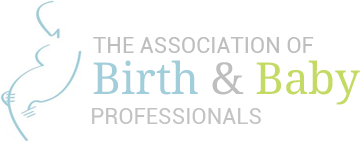We LOVE the subject of antenatal expressing! Despite some of the controversial points raised about antenatal expressing, there are so many benefits, especially for babies who's parents suffer from diabetes (or gestational diabetes), or babies who are born with a low birth weight (especially multiples).
What is Antenatal Expressing?
Antenatal Expressing, is expressing colostrum in the last few weeks prior to your baby arriving. It is advised for mothers to wait until 36/37 weeks, although for mothers who are having multiple births, they should start a few weeks earlier than this, due to their higher chance of giving birth from 37 weeks.
Why do the ladies at South West Maternity love Antenatal Expressing?
- Antenatal expressing gives a mother a chance to learn the valuable skill of Hand Expressing. A mother who is confident when expressing, and handling her breasts, will be confident she can produce milk, and has a much better chance of a great start when breastfeeding her baby. She is also much more likely to continue to breastfeed for longer.
- When a baby is born, a blood sugar level is taken. Even in healthy babies, this level can sometimes be considered low (although it is much more likely in babies with a low birth weight) and often the hospital will suggest a formula 'top up' (or just go ahead and administer one if you have signed consent forms). This top up can often stretch a baby's tummy and can make the initial days of breastfeeding that little bit harder. If a mum has expressed antenatally, she will have a store of frozen colostrum, which she is able to give to the hospital staff in the event of a top up being needed.
- Babies who's parents are diabetic, are much more at risk of needing a top up due to low blood sugar levels. Studies have shown that the bovine serum albumin in formula, can trigger an auto-immune response, which is linked to an increased risk of Type 1 Diabetes. In simple terms, Babies with diabetic parents are more likely to receive formula. which increases THEIR risk of also becoming diabetic. If a mother has been able to express antenatally, she will have a store of colostrum which can be given instead of formula. Further to this, mums who breastfeed decrease their chances of gestational diabetes in subsequent pregnancies.
- Babies who may have difficulties after birth, and need hospital care, benefit greatly from ALL breast milk, and if you have already been able to begin a supply antenatally, your baby will have that much more support from you.
How do you Antenatally Express?
- We would suggest starting at 37 weeks if you are experiencing a normal pregnancy, and 35 if you are having a multiple birth, or are at risk of delivering early.
- After your shower (when you know that you are clean, warm and relaxed) begin by massaging your breasts gently toward the nipple.
- You can begin to hand express - Use your thumb and forefinger to create a 'C' shape, and place them on your breast, about an inch back from your nipple. Press in towards your chest and then squeeze gently together. Your fingers should stay in the same place, and not slide down the nipple, as this would be likely to cause you pain.
- Continue for up to 5 minutes, once or twice a day (if you have not had a shower, it is important that you make sure that your hands are clean)
- If you experience ANY cramping in your uterus, STOP IMMEDIATELY - some studies have show that excess (4hrs plus) nipple stimulation can cause early labour. This is due to the oxytocin released. BUT you also release oxytocin when arroused, and no one advises you against night time activities 😉
How do you collect and store the colostrum?
- Pick up some 2.5ml syringes from your local Chemist (or boots)
- Use the syringes to suck up the drops of colostrum from your breast. (this can take a little practice!)
- You can use the same syringe to collect for 24 hours, as long as it is placed in a sterile container in the fridge in between sessions. (even 1ml expressed is a great amount - so don't be disheartened if you only are able to produce a small amount - it is all useful!)
- After 24hrs freeze the syringe in a sterile plastic bag, and remember to label it with how much was in the syringe and the date it was expressed, along with your full name.
- Remember to take the syringes with you to the hospital in a freezer bag (so that they remain frozen on your journey)
- Make sure that the hospital store them for you and that they are aware you have brought them! This can also be written into your birthing plan. Some hospitals may even allow you to bring some in prior to labour, so that you know it is safely stored before your arrival.
We hope that you have found this interesting, and if you have any questions at all, please feel free to ask us!
